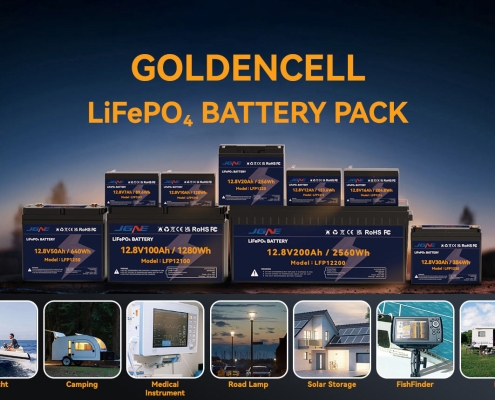Transitioning from Lead-Acid to Lithium: The Future of Battery Technology
In the quest for more efficient and sustainable power solutions, battery technology has undergone remarkable advancements. Among these innovations, the transition from traditional lead-acid batteries to lithium-based solutions, such as LiFePO4 batteries, has emerged as a transformative development. Lithium batteries have revolutionized industries that require reliable, long-lasting, and efficient energy solutions, catering to diverse applications like marine environments where fishfinder battery systems thrive. With their lighter weight, enhanced safety, durability, and impressive technological advantages, lithium batteries have become the superior choice over lead-acid counterparts. In an increasingly eco-conscious world, understanding the benefits, performance, and maintenance of lithium technology is crucial for businesses and individuals seeking highly efficient batteries for their energy needs. Join us as we explore the future of battery technology and the remarkable advantages that lithium-based solutions offer.
Table of contents:
Advantages of Replacing Lead-Acid Batteries with Lithium Solutions
How Lithium Batteries Offer Better Performance and Cost Savings Over Time
Understanding the Charging and Maintenance Differences Between Lithium and Lead-Acid Batteries
Advantages of Replacing Lead-Acid Batteries with Lithium Solutions
The evolution of battery technology has brought about a significant shift in industries that rely on efficient and sustainable power solutions. Among these advancements, the transition from traditional lead-acid batteries to lithium-based solutions, like LiFePO4 batteries, represents a game-changing development. Lithium batteries have quickly emerged as the superior option for applications that require reliable, long-lasting, and efficient energy, such as powering fishfinder battery systems in marine environments. Unlike lead-acid counterparts, lithium batteries are lighter, safer, more durable, and boast impressive technological advantages. For businesses and individuals in need of highly efficient batteries designed for diverse applications, understanding the benefits, performance, and maintenance of lithium technology is essential for staying ahead in an increasingly eco-conscious world.
How Lithium Batteries Offer Better Performance and Cost Savings Over Time
One of the primary advantages of lithium batteries, specifically LiFePO4 batteries, is their unmatched lightweight design and superior longevity. Weighing up to two-thirds less than equivalent lead-acid options, lithium batteries improve weight distribution and enhance overall performance, making them particularly advantageous for marine applications like fishfinder systems. Additionally, lithium batteries offer a higher energy density, facilitating longer run times and quicker charging cycles. Their lifespan, which often exceeds ten years with proper usage, significantly outperforms lead-acid batteries, which typically last only three to five years. Beyond extending operational timeframes, lithium batteries support 100% Depth of Discharge (DOD) and 100% State of Charge (SOC), offering reliability across various demanding conditions. This translates into reduced replacement costs and improved cost efficiency over time, making them an appealing choice for businesses and hobbyists alike.
Understanding the Charging and Maintenance Differences Between Lithium and Lead-Acid Batteries
Another critical feature of lithium batteries is their maintenance-free and eco-friendly nature. Unlike lead-acid batteries, which often require regular maintenance and careful monitoring of fluid levels, lithium batteries require no such effort. They also operate more efficiently under extreme temperatures, making them suitable for a wide range of environments. Built-in battery management systems (BMS) ensure stability, safety, and optimized performance by preventing overcharging or overheating. Furthermore, lithium batteries are environmentally responsible, as they eliminate the use of hazardous components like lead and mitigate pollutive risks associated with improper disposal. For organizations and manufacturers aiming to implement sustainable practices in their operations, upgrading to LiFePO4 battery technology not only aligns with eco-friendly goals but also provides technical flexibility for high-capacity energy demands. Whether for marine use or industrial applications, lithium batteries redefine what it means to achieve sustainable, high-performance energy storage.
In conclusion, the transition from lead-acid batteries to LiFePO4 batteries represents a significant leap forward in the field of energy storage. With their lightweight construction, enhanced safety features, and optimized performance, LiFePO4 batteries offer a compelling alternative for various applications, including marine systems and fishfinders. By leveraging lithium iron phosphate technology, organizations and manufacturers can not only achieve higher energy efficiency and cost savings but also contribute to a more sustainable future. Embracing LiFePO4 batteries allows for technical flexibility, meeting the high-capacity energy demands of modern industries while reducing environmental impact. Make the switch to LiFePO4 batteries and experience the benefits of reliable, eco-friendly, and high-performance energy storage systems.



